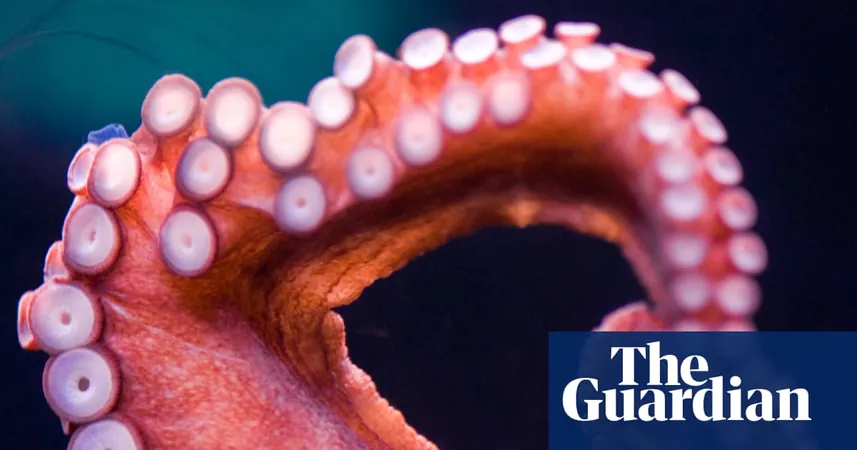
Octopuses: Nature's Master Multitaskers with Unique Arm Preferences!
2025-09-11
Author: Jessica Wong
Ever tried dancing with two left feet? While some humans might struggle, octopuses are aces at coordinating their eight flexible arms to tackle a variety of tasks—from foraging for food to building their homes!
Recent groundbreaking research reveals that these intelligent cephalopods, much like primates and fish, show distinct preferences for which limbs they use for different activities. Kendra Buresch, a co-author of the study and a researcher at the Marine Biological Laboratory in Woods Hole, Massachusetts, shared, “In general, octopuses favored their front arms over the back ones for most actions, although we did encounter exceptions along the way.”
Published in the journal *Scientific Reports*, the study examined 25 wild octopuses from three different species. These were captured on film from 2007 to 2015 across diverse habitats—from the pristine waters of the Cayman Islands to the rugged shores of Spain. The researchers meticulously analyzed one-minute video clips, categorizing various behaviors and the specific arm movements involved.
The team identified a remarkable 15 distinct behaviors and 12 unique arm movements. Some tasks, like crawling and the intriguing parachute attack, demanded a variety of arm actions, while simpler tasks such as backward swimming were less complex.
What’s even more fascinating is that these octopuses can perform multiple actions simultaneously with neighboring arms, showcasing a remarkable level of flexibility and adaptability across different environments.
The study revealed that while there wasn’t a strong preference for right or left arms, octopuses did prefer to use their front arms over their rear arms in a ratio of 61% to 39%. Digging deeper, the findings suggested that the front pairs were primarily used for reaching, raising, lowering, and curling actions, while the rear pairs excelled at locomotion techniques like the 'stilt action' and rolling, where one arm acts like a conveyor belt.
These insights not only deepen our understanding of how octopuses manage their limbs for complex tasks, but they also open doors for innovations beyond marine biology. The researchers believe these flexible capabilities may inspire engineers working on soft robotics and other fields!



 Brasil (PT)
Brasil (PT)
 Canada (EN)
Canada (EN)
 Chile (ES)
Chile (ES)
 Česko (CS)
Česko (CS)
 대한민국 (KO)
대한민국 (KO)
 España (ES)
España (ES)
 France (FR)
France (FR)
 Hong Kong (EN)
Hong Kong (EN)
 Italia (IT)
Italia (IT)
 日本 (JA)
日本 (JA)
 Magyarország (HU)
Magyarország (HU)
 Norge (NO)
Norge (NO)
 Polska (PL)
Polska (PL)
 Schweiz (DE)
Schweiz (DE)
 Singapore (EN)
Singapore (EN)
 Sverige (SV)
Sverige (SV)
 Suomi (FI)
Suomi (FI)
 Türkiye (TR)
Türkiye (TR)
 الإمارات العربية المتحدة (AR)
الإمارات العربية المتحدة (AR)